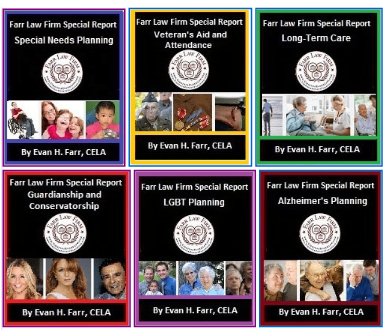Finding Joy in Alzheimer's
If you cannot view the image below, please read the article on our blog.

Photo from everydayfamily.com
Q. It's National Grandparent's Day on Sunday, September 13. My children want to do something special with their grandpa, who is in the early stages of Alzheimer's. Unfortunately, ever since the diagnosis, he has resigned himself to the fact that he is sick, and has not left his house. My children can't think of anything to do with him when we visit that everyone will enjoy. I also hope they don't get
upset when they see their grandfather this way, since he lives in Yorktown, VA, and we don't see him often. How can we make the most of our time together as a family?
A. Alzheimer’s is a devastating illness, and as symptoms start to progress, the person affected, their caregiver, and their loved ones, may begin to think that the person can no longer enjoy life. In the early stages, those affected may fall into a period of deep depression and despondence. Grief is another feeling that can develop, followed by anger at the situation, and sometimes anger at God for letting the person develop this disease in the first place.
What many don't realize is that it doesn't have to be this way. In the book, Creating Moments of Joy: A Journal for Caregivers, by Jolene Brackey, several experts on Alzheimer's were interviewed about the disease, and a different picture of the disease emerged. Yes, they unanimously agreed that
Alzheimer’s is a terrible disorder, but they also stated that people who have it can and do still have the capacity to enjoy life.
In fact, according to Teepa Snow, a nationally renowned expert on Alzheimer’s caregiving, almost all people with Alzheimer's "can enjoy life if they have the right support and environment.” The book's author, Jolen Brackey, concurs, stating, “We are not able to create a perfectly wonderful day [for people who have Alzheimer’s], but it is absolutely attainable to create perfectly wonderful moments – moments that put smiles on their faces, a twinkle in
their eyes or trigger [pleasant] memories.”
So, how can you create joyful moments for your father and his grandchildren? According to the book, if your father is reluctant to leave the home, your children could bring the following:
-Photo Albums: Bringing in family photos can brighten your father's day. A nice supplement to photos of your children could be a picture of you at the same age. It will give him some much-needed context. Also, avoid showing pictures on your cell phone. If your father has impaired vision the often accompanies aging, photos that are at least 5 x 7 in size, are best.
-Bring CDs or use a music app on your phone/tablet/computer:
Make sure the CDs or artists selected contain the music your father loves. Songs sung by Sinatra, Sammy Davis, and Perry Como might not be what you want to hear, but if that is the music your father has loved throughout his life, it’s likely that he will be transported back to a better time when he hears it.
-Bring questions: You and your children can spend time asking questions of your dad, even if you know the answers. Ask him what he did for a living, where he worked, about his favorite job, and about his favorite part of that job. Ask about his motorcycles, pets, or baseball card collection (or whatever his was into). This will help jog his memory and lift his spirits.
-Bring your laptop or tablet: Visit websites like the Internet Archive. This and other websites offer full episodes of old radio and TV shows, TV newscasts, and commercials from the 50s and 60s. Your father will likely enjoy it and chances are, you will enjoy the nostalgia too.
-Bring a well-behaved pet: Contact a local shelter to see if they have a pet therapy program that can be scheduled to come to your father's home, or bring in your own pooch or kitty, as long as he or she is well-behaved and vaccinated. We all need unconditional love, and pets are more than willing to give it and receive it.
As your father reaches the middle and later stages of his Alzheimer's, let your children know that things like looking at old pictures or watching movies together may become somewhat passive. With a little thought, however, you can still find active ways to spend time together, such as giving the person ‘props’ the two of you play with together.
More Insight Into Things to do with Dad
Teepa Snow, in partnership with Senior Helpers, an in-home care company, developed ’Senior Gems’, a system that classifies Alzheimer's patients into 6 categories, each named after a gem. The ’Gems’ table shows the basic characteristics of people at each level (or each stage of Alzheimer's) and provides tips for interacting with them. Senior Gems is also used to train and prepare caregivers to
engage in activities that seniors at each stage can do. The gem categories, from Sapphires to Pearls, enable trained caregivers to assess, prepare, and engage with seniors who exhibit the symptoms of Alzheimer's.
For example, according to the 'Gems' table, Diamonds (who are in the early stages of Alzheimer's): “like to feel competent and valued, and it is important for them to feel comfortable and in control. They typically prefer familiarity, and may have difficulty with change. They may repeat themselves by telling the same stories and asking the same questions. Activities you can do with them can include having lunch or dinner at a familiar place or at home, and chatting on the
porch to get fresh air."
Helping Your Children Understand Alzheimer's
The topic of children and Alzheimer's gained national attention when HBO, in conjunction with the National Institute on Aging, made a poignant documentary called "Grandpa, Do You Know Who I Am?" Narrated by Maria Shriver after her father was diagnosed with Alzheimer's, it tells the stories of five children, ages six to 15, coping with grandfathers or grandmothers suffering from Alzheimer's.
Ultimately, the film shows how important it is to "go with the flow," offering up a variety of perspectives on how kids can handle a grandparent's loss of memory through kindness, patience and compassion.
Medicaid Planning for Alzheimer’s and Other Types of Dementia
When it comes to planning for long-term care needs, generally the earlier someone with dementia plans, the better. But it is never too late to begin the process of Long-term Care Planning, also called Lifecare Planning and Medicaid Asset Protection Planning. Medicaid planning can be initiated by an adult child acting as agent under a properly-drafted Power of Attorney, even if you are already in a nursing home or receiving other long-term care.
Medicaid Asset Protection
People with Alzheimer’s live on average four to eight years after they’re diagnosed, but some may live 20 years beyond their initial diagnosis, and they face special legal and financial needs. Here at The Farr Law Firm, we are dedicated to easing the financial and emotional burden on those suffering from Alzheimer's and their loved ones. We help protect the family’s hard-earned assets while maintaining your loved one’s comfort, dignity, and quality of life by
ensuring eligibility for critical government benefits such as Medicaid and Veterans Aid and Attendance. Please call us as soon as possible to make an appointment for a no-cost consultation:
Fairfax Alzheimer's Planning: 703-691-1888
Fredericksburg Alzheimer's Planning: 540-479-1435
Rockville Alzheimer's Planning: 301-519-8041
DC Alzheimer's Planning: 202-587-2797
----
Critter Corner: Learning to "Speak Alzheimer's"

Dear Angel,
My mother was diagnosed with Alzheimer's a couple of years ago. She used to be a college professor and is a brilliant woman. I began noticing that when someone hears of her Alzheimer's, they ask me questions that she could very well still answer for herself. How can I convey to others that my mother can still speak for and advocate for herself? Also, when she can no longer speak for herself, how will I be able to communicate with her?
Thanks!
Sy Lenst
-----
Dear Sy,
Millions of people with Alzheimer’s or other dementias are intelligent people, like your mother, who are still actively advocating for their own rights and needs. Unfortunately, most people don’t understand the disease and, therefore, don’t know how to listen to people with Alzheimer's.
According to a recent article in NextAvenue, "just like anyone else with unique challenges and special needs, people with Alzheimer's need to be able to communicate their needs, wants and fears without being judged." The article states that "(m)any continue to advocate only to be
ignored, until it's too late and the disease begins quieting their “voice” and ultimately steals their ability to form words and communicate verbally."
A solution to people not listening to your mother now could be simply not answering for her. Defer to her and wait for her to answer for herself, or say "Why don't you ask her?"
When your mother is no longer able to communicate her thoughts verbally, it will be important to learn to listen with your eyes, ears, and heart. In addition, it will be helpful to learn to "speak Alzheimer’s."
Speaking Alzheimer's
During a free, one-hour, interactive workshop on the Together in This Website, tips & strategies are offered to help caregivers and loved ones have successful communication with persons with Alzheimer’s disease and related dementias.
The following is discussed during the workshop:
· The relationship between the 7 stages of Alzheimer’s disease;
· How communication is affected by Alzheimer’s disease;
· Communication strategies that focus on the person and not the disease;
· Why a person-center approach to care improves communication;
· The “step-by-step” communication technique.
You can watch the 1 hour workshop or listen to the audio file by clicking here, and hopefully it will help you to communicate with your mother when the time comes that she can no longer speak for herself.
Hope this is helpful!
Meows and kisses,
Angel
--------
Sign up for our FREE Special Reports and get the answers to your burning questions! Just click on a cover below!

|
| In the Media |
|
Mark your calendar: On September 17, I will be appearing on "Swim with Jim" to discuss Aging in Place. Listen here.
|
| |
| Special Offer |
|
We’re Giving Away My Best-Selling Books – Click Here to Find out Why and to Get Your Free Copies
|
| |
| Find Us |
|
|
| Upcoming Events |
|
Our upcoming Living Trust Plus: How to Protect Your Assets from the Expenses of Probate and Long Term Care seminar is on October 10 or November 21 in Fairfax.
----------
|
Article Reprint Authorization
|
We invite you to reprint our articles to bring helpful content to your readers, with the following guidelines:
-The article is to be printed in its entirety;
-Additions, deletions, or changes in the text, title or illustrations may not be made;
-Credit is given to The Law Firm of Evan H. Farr, P.C., as the original source.
Example:
Source: Reprinted from The Law Firm of Evan H. Farr, P.C. Newsletter (www.FarrLawFirm.com).
|
|
Mailing Address
|
Fairfax:
10640 Main Street
Suite 200
Fairfax, VA 22030
703-691-1888
Fredericksburg:
511 Westwood Office Park
Fredericksburg, VA 22401
540-479-1435
Rockville, MD:
1 Research Court
Suite 450
Rockville MD 20850
301-519-8041
Washington, DC:
1425 K Street, NW
Suite 350
Washington, DC 20005
202-587-2797
|
|

